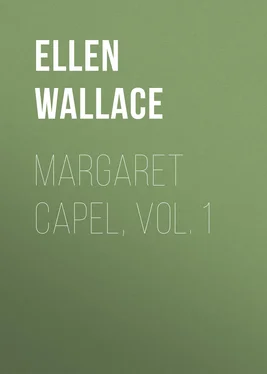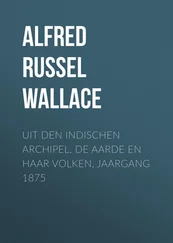Ellen Wallace - Margaret Capel, vol. 1
Здесь есть возможность читать онлайн «Ellen Wallace - Margaret Capel, vol. 1» — ознакомительный отрывок электронной книги совершенно бесплатно, а после прочтения отрывка купить полную версию. В некоторых случаях можно слушать аудио, скачать через торрент в формате fb2 и присутствует краткое содержание. Жанр: foreign_prose, literature_19, foreign_antique, на английском языке. Описание произведения, (предисловие) а так же отзывы посетителей доступны на портале библиотеки ЛибКат.
- Название:Margaret Capel, vol. 1
- Автор:
- Жанр:
- Год:неизвестен
- ISBN:нет данных
- Рейтинг книги:5 / 5. Голосов: 1
-
Избранное:Добавить в избранное
- Отзывы:
-
Ваша оценка:
- 100
- 1
- 2
- 3
- 4
- 5
Margaret Capel, vol. 1: краткое содержание, описание и аннотация
Предлагаем к чтению аннотацию, описание, краткое содержание или предисловие (зависит от того, что написал сам автор книги «Margaret Capel, vol. 1»). Если вы не нашли необходимую информацию о книге — напишите в комментариях, мы постараемся отыскать её.
Margaret Capel, vol. 1 — читать онлайн ознакомительный отрывок
Ниже представлен текст книги, разбитый по страницам. Система сохранения места последней прочитанной страницы, позволяет с удобством читать онлайн бесплатно книгу «Margaret Capel, vol. 1», без необходимости каждый раз заново искать на чём Вы остановились. Поставьте закладку, и сможете в любой момент перейти на страницу, на которой закончили чтение.
Интервал:
Закладка:
"Oh!" said Miss Gage smiling, "I should never measure a person's knowledge by the languages, or the accomplishments they happen to have learned."
Margaret looked inquiringly at her, but had not courage to ask for an explanation of so strange a remark. She knew that at school a girl who learned German was thought more highly of than one who only learned French, and one who played the guitar took precedence of the young lady who only paid for lessons on the piano.
"I mean," said Miss Gage, "that the education which is of most value to us through life, is that which teaches us to think and act with judgment and integrity, which is quite independent of the knowledge of Spanish and German, or of any accomplishment, however pleasing."
This was a new idea to Margaret, but before she could make any observation upon it, a servant came to let them know that coffee was ready, and they went immediately to the drawing-room.
After tea, Hubert Gage asked his sister for some music.
"Will you have the harp?" said Miss Gage ringing the bell, "I will just give my father his book, and then play what you like. My harp, Davis."
"Why don't you keep it down here?" asked her brother.
"Ah! you know nothing of female politics," said Miss Gage, smiling; "the young ladies like me a great deal better for keeping my harp, and some other things in the background."
"But the young gentlemen don't;" said Hubert, as he stood leaning on the harp.
"I am very sorry," said Miss Gage laughing, "I cannot arrange it to please all parties; but in society where every one is anxious to play a prominent part, I feel it to be a real kindness not to take up their time by my performances."
"Don't you think Bessy spoils me?" asked Captain Gage of Margaret, as his daughter found the place in his book, and arranged the wax lights beside his chair.
She had not courage to make any other reply than a blush and a laugh.
"After all, Bessy, I am half tired of this book," said Captain Gage, "I shall never have patience to get through it. Have you seen it?" he asked, holding out the volume to Margaret. It was the 'Tour to the Sepulchres of Etruria.'
She could hardly read it aright in her impatience. Here was undoubtedly all she wanted to know—she would be able to find out at last who the Etruscans were.
Elizabeth smiled, and told her when her father had made up his mind not to finish it, which she foresaw would be very soon, she would send it to her. "But," she said, "you must not expect too much; this is an account of a lady's visit to some tombs. There is but little information regarding the people, except what may be inferred from the degree of excellence they displayed in the decoration of their sepulchres."
"But you know, Bessy," said her brother, "that a people's progress in art is the best standard you can have of their degree of civilization."
"Yes; if you had looked upon them as a barbarous race," said Miss Gage to Margaret, "you will find sufficient proof in this book that you had not done them justice."
"Why, Bessy," said Hubert, "no Phœnician colony ever was, or could be, in a state of barbarism."
"Assuming that they were Phœnicians," said Elizabeth.
"There can be no doubt of that," returned her brother, "their character is sufficient evidence of their origin. The old Greek character, written from right to left, after the fashion of the Phœnicians."
Elizabeth unlocked a cabinet, and took out a gold serpent-ring—she showed it to Margaret as an undoubted Etruscan relic, which her brother had brought her from Rome. Margaret looked at it with great reverence—it was thick and heavy, and the gold was of a dull colour—not like the bright trinkets in a jeweller's shop; but it was delightful to hold in her hand something that was two thousand years old.
Miss Gage went on to talk of the circlets of gold leaves found in some of the tombs; of the city of Cœre, and the origin of the Vestal Virgins; and the degree of religious knowledge enjoyed by the Etruscans; and Hubert took pencil and paper, and sketched for Margaret one of the allegorical processions painted on the wall in the tombs; taking care to exaggerate, as much as possible, the evil spirits which figure in those decorations.
Margaret listened earnestly—she was afraid to lose a word—it was not to her a dry narrative of facts, but a dim unfolding of the pages of a gorgeous and mystical romance. A people so magnificent, and of whom no written literature remains, appeared to her so contradictory and so tantalising, that she longed to seize the book at once, and never rest until she had read it through. She hoped Miss Gage would say something more on the subject, but just then Elizabeth saw Captain Gage trying to open one of the illustrations in his book, and she went to his chair to help him. Margaret noticed that Miss Gage was always on the watch, and whenever her father was at a loss, from having only one hand, she supplied the deficiency; and that so quickly and quietly that few people would have been aware of it.
"Now for your harp, Bessy," said her brother, "we had forgotten all about it."
"Because we have been better employed;" said Miss Gage, placing herself at the harp; "music is always a pis aller ; when people cannot talk, they very naturally have recourse to a noise."
Margaret could not echo this remark: she loved music from her heart, and she sat absorbed in the sweet sounds, quite unconscious this time that Hubert Gage's eyes were fixed upon her face. Elizabeth played splendidly—better than any young lady at her school, and without a book. She sat watching her fine marble hand and arm as she stilled the harp-strings, and began to fancy that she should like to play the harp instead of the organ.
Hubert Gage pressed her very much to play in her turn, but she declined with a feeling of panic that almost made her giddy; and Elizabeth, at her request, sung her a ballad. It was the first time she had ever heard a song spoken , if the phrase may be applied to vocal music, and it moved her almost to tears. Hubert asked her if Bessy did not sing very well, and Margaret, lifting up her dewy eyes, said, "beautifully!" and looked so beautiful when she said it, that he leaned across to his sister, and declared that there was not upon the face of the earth such an exquisite little creature as her friend.
Miss Gage rose from the harp, and they sat round the fire for a chat, but there was no time for any more conversation, for Margaret's carriage was announced.
Captain Gage told her that she must soon come to see Bessy again. Elizabeth took an affectionate leave of her, and Hubert led her into the hall and wrapped her cloak all round her, much as one would muffle up a little child, talking and laughing all the time, and stopping to gather her flowers from the creepers in the hall in the intervals of handing her gloves, and winding her boa round her neck. He then went to the door, and assuring her that it was a hard frost, he offered her a cloak of his own, which she had some difficulty in preventing him from putting on, and which he absolutely insisted on throwing to the bottom of the carriage to keep her feet warm.
Margaret drove off a little taller than she was before. She wondered what the girls at school would have said if they had heard a young man declare he thought her an exquisite creature. She believed nobody thought her so at school. Girls had often told her that young men had quite looked at them, and squeezed their hands at a Christmas dance, but she wondered whether they ever threw their cloaks at their feet, almost like Sir Walter Raleigh and Queen Elizabeth. She had learned some few things that evening. She had spent several hours with a young lady who had not acquired a proficiency in an accomplishment for the sake of exhibiting to her acquaintance, but in order to make her home cheerful. Miss Gage had never asked her for a list of the things she had learned, a list so important to school girls who graduate, by its length, their good opinion of every girl they met.
Читать дальшеИнтервал:
Закладка:
Похожие книги на «Margaret Capel, vol. 1»
Представляем Вашему вниманию похожие книги на «Margaret Capel, vol. 1» списком для выбора. Мы отобрали схожую по названию и смыслу литературу в надежде предоставить читателям больше вариантов отыскать новые, интересные, ещё непрочитанные произведения.
Обсуждение, отзывы о книге «Margaret Capel, vol. 1» и просто собственные мнения читателей. Оставьте ваши комментарии, напишите, что Вы думаете о произведении, его смысле или главных героях. Укажите что конкретно понравилось, а что нет, и почему Вы так считаете.












